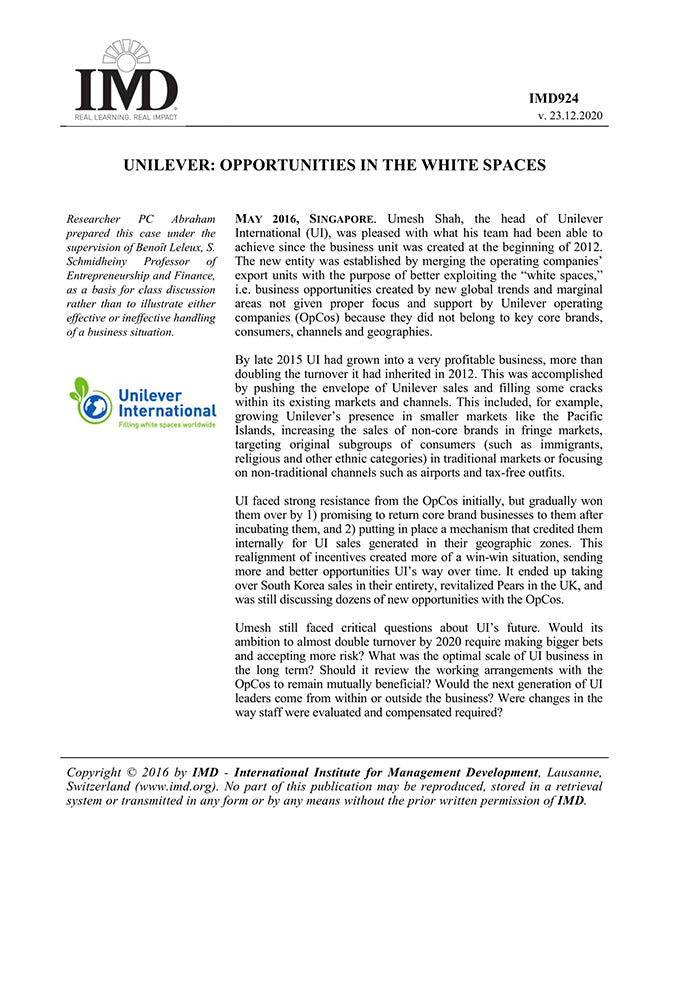Unilever: Opportunities in the White Spaces
受取状況を読み込めませんでした
May 2016, Singapore. Umesh Shah, the head of Unilever International (UI), was pleased with what his team had been able to achieve since the business unit was created at the beginning of 2012 by merging the operating companies' export units with the purpose to better exploit the "white spaces," i.e. business opportunities created by new global trends and marginal areas not given proper focus and support by Unilever operating companies (OpCos) because they did not belong to key core brands, consumers, channels and geographies. By late 2015 UI had grown into a very profitable business, doubling the turnover it had inherited in 2012, by pushing the envelope of Unilever sales and filling some cracks within its existing markets and channels. This included, for example, growing Unilever's presence in smaller markets like the Pacific Islands, increasing the sales of non-core brands in fringe markets, targeting original subgroups of consumers (such as immigrants, religious and other ethnic categories) in traditional markets or focusing on non-traditional channels such as airports and tax-free outfits. UI faced strong resistance from the OpCos initially, but gradually won them over. He still faced critical questions about UI's future. Would its ambition to almost double turnover by 2020 require making bigger bets and accepting more risk? What was the optimal scale of UI business in the long term? Should it review the working arrangements with the OpCos to remain mutually beneficial? Would the next generation of UI leaders come from within or outside the business? Were changes in the way staff were evaluated and compensated required? Learnong objective: Developing a white space organization, nurturing the internal entrepreneurs, managing fast growth, new business models, intrapreneurship, managing incentive programs, managing brands on the margin, niche marketing, expansion strategies on the fringe.
【書誌情報】
ページ数:20ページ
サイズ:A4
商品番号:HBSP-IMD924
発行日:2016/12/20
登録日:2018/7/19


